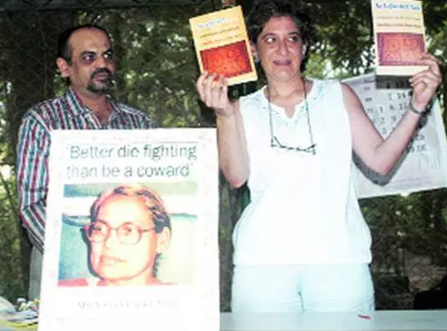Navleen Kumar, social worker and defender of indigenous land rights, was stabbed to death on Wednesday, June 19, 2002. Two assailants brutally stabbed her 19 times when she went for her daily morning walk.
Navleen was well-known for defending the rights of the Adivasis indigenous group for more than a decade. This indigenous group’s land was taken away by an alliance formed by local politicians, builders and the land mafia.
The Thane district, where Navleen did most of her work, is home to the Adivasis, an indigenous group dedicated primarily to agriculture. This indigenous group has special land rights aimed at its protection: their land can only be sold between Adivasis people. However, since the late 1970s, the Thane district has seen an enormous increase in land-price and after that, there has been large-scale acquisition of land.
Hitendra Thakur, a Nationalist Congress Party MLA, was the most prominent buyer, who bought approximately 90 acres of land to build a residential complex. According to Navleen, Thakur manipulated the land records because around 40 acres of that land belonged to the Adivasis. She challenged the ownership of the land and the residential complex could not be built. On top of that, several allegations followed, that there were threats and intimidation in the process of acquiring the land (even the land that did not belong to the Adivasi people).
In 2008, two gang members who worked closely with land-grabbing mafias, confessed to killing Navleen and were arrested. However, further investigations related to the possible involvement of Hitendra Thakur were not pursued.
